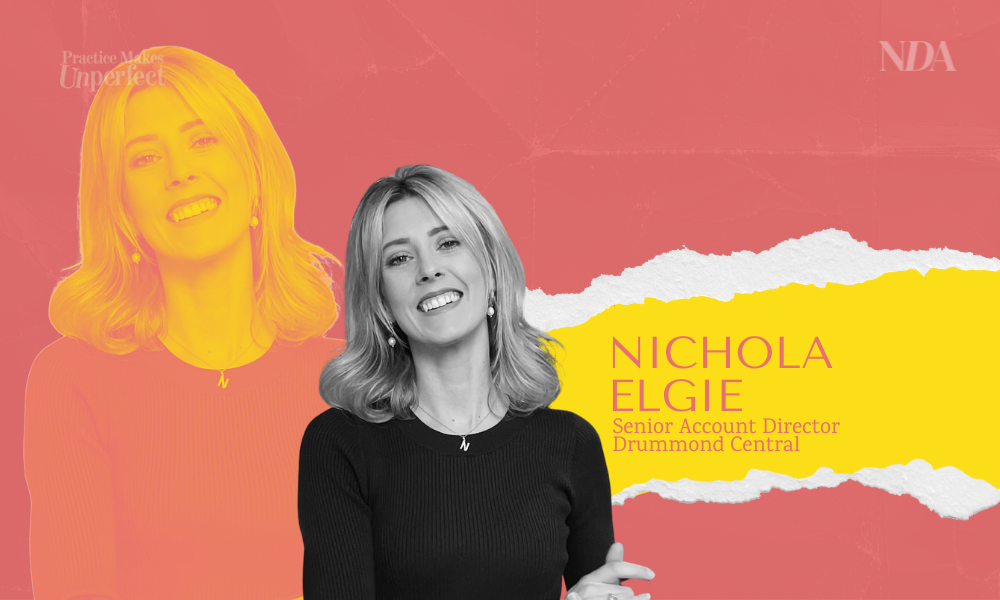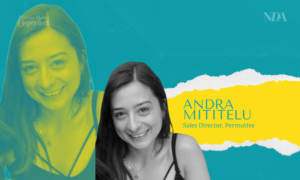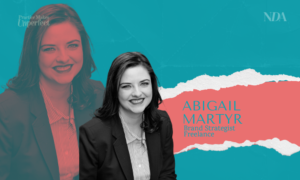By Nichola Elgie Senior Account Director,Drummond Central
These articles have been written by the latest cohort of the Practice Makes UnPerfect programme – a course that helps people find and finesse their public voices.
How many times during interviews has the word ‘perfectionist’ popped up as a response to the age-old question: “what three words describe you?”
Is being a perfectionist the perfect approach to your career? No. Making a few screw ups, mistakes, mishaps, and faux paus throughout your career can be a brilliant thing, and I’m going to tell you why.
Starting with science.
Our brains are made up of approximately 100 billion neurons – Neurons are information messengers. They use electrical impulses and chemical signals, known as synapses, to transmit information between different areas of the brain, and between the brain and the rest of the nervous system.
At birth, every neuron has an estimated 2,500 synapses, by the age of three, this number has grown to a whopping 15,000 synapses per neuron. But by the time we reach adult age, this number is around half that. Why? Because neurons that are used more frequently develop stronger connections and those that are rarely or never used eventually die.
A self proclaimed perfectionist has a tried and tested approach – meaning their brain is slowly dying. Ok, that’s a little bit dramatic.
However, a neurological study which analysed brain scans, showed that new synapses are made in our brains when mistakes are made. Meaning our brains grow more when we leave our ‘perfect self’ behind.
Therefore, being the opposite of a perfectionist, and willing to try new things with the risk of making a mistake, is good. It’s these mistakes that teach us what doesn’t work and forces our brains to explore new approaches, take different viewpoints and come at challenges with a new sense of vigour.
Not enough to convince you?
Did you tune into the Megan and Harry interview with Oprah? Of course, so did 17 million other people – making it one of the most-viewed non-sport event on broadcast TV in 2021. Not bad for someone whose network was branded a flop just 10 years before.
The Oprah Winfrey Show had been number one for 21 years, but Oprah told herself she’d one day find new territory and break new ground. This led to the launch of OWN, the Oprah Winfrey Network, which in its first year struggled to attract more than 150,000 viewers per month. Ouch.
Oprah called it the “worst period in her professional life”.
Another great example of someone who has made many mistakes during their career, is the world’s richest person, Elon Musk.
As he tried to begin his career, his applications were declined from two major tech companies, but that didn’t dampen his ambition and he went on to create an online searchable telephone directory which struggled to attract investors in its early years.
His second venture, PayPal, was initially dubbed as the ‘worst business concept of the year’. when it was released as security software. Elon knew something wasn’t working, and having read customer reviews – he learned that the software was being used as an online wallet to make ebay transitions. And there’s PayPal as we know it today.
Elon Musk could have, quite easily, pulled the plug on both ventures, he didn’t. He learned from his initial mistakes and tried something new in an attempt to fix it. It worked.
However, both of these examples are from individuals who have had the luxury to make mistakes without having to worry about the consequences being detrimental to their livelihood.
If we’ve learned that mistakes are how we grow and develop – then why aren’t we creating a culture where ‘good mistakes’ are welcomed, if not encouraged. Why are we still fixated on this view of ‘perfection’? Thankfully, in the creative industries, mistakes won’t cost lives, but mistakes can teach us many ways in which something doesn’t work – resulting in that one magic spark of an idea that absolutely does.
There is a sweet spot of ‘good mistakes’ however – the University of Arizona recently completed a study to determine the optimal rate of failure vs success to hit the ‘sweet spot’ of learning. Turns out, it’s 15%. Meaning the rate we learn is at its finest when our brains are at a ‘perfectionist level’ of 85%.
Let’s normalise this ‘perfectionist level of 85%’, for ourselves, our colleagues and the creative industry.
Try it – for every nine things you do to ‘perfection’, do one more different to what you’ve done before and see if it works. Fuck it up, learn from it, move on.












